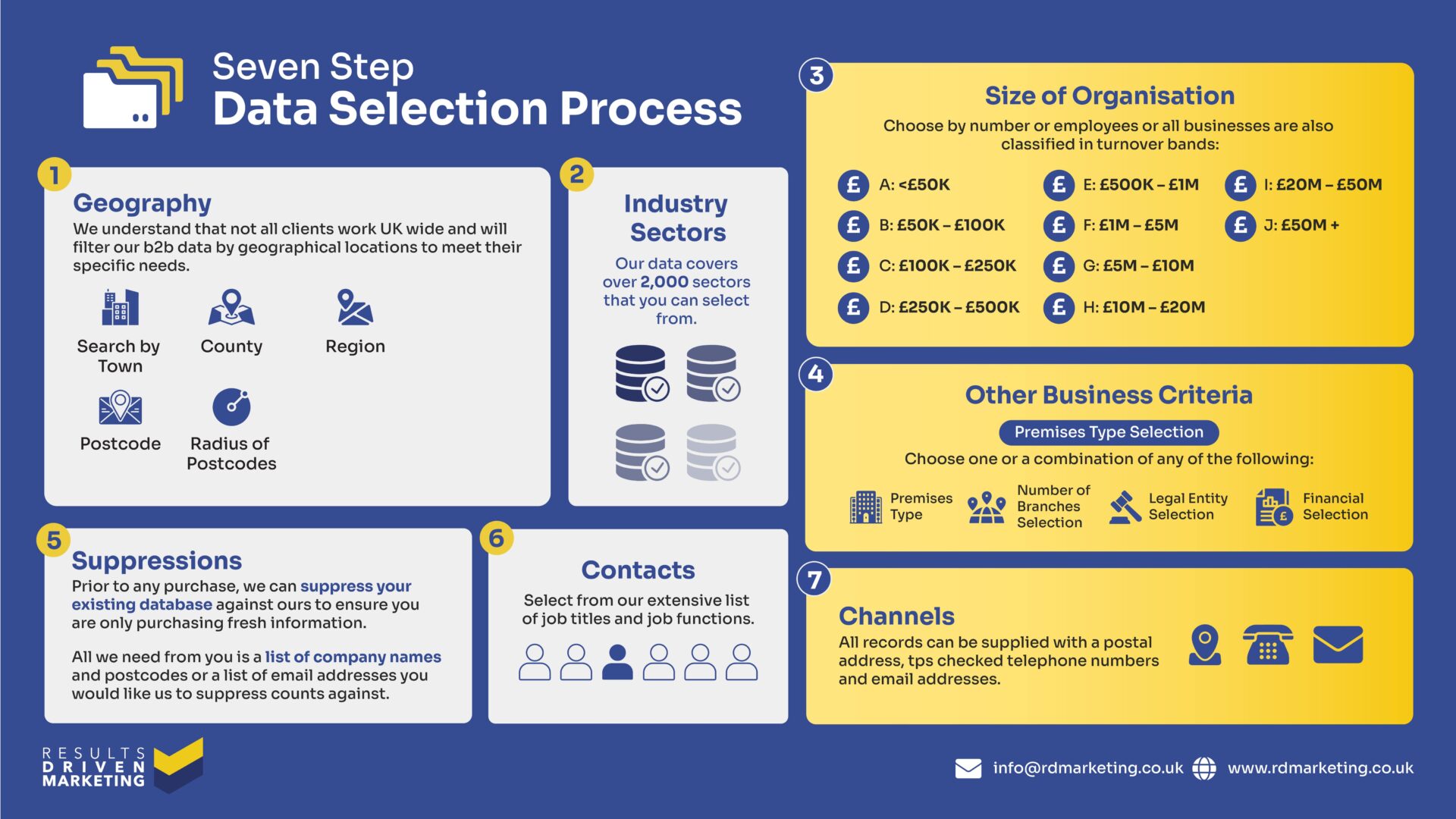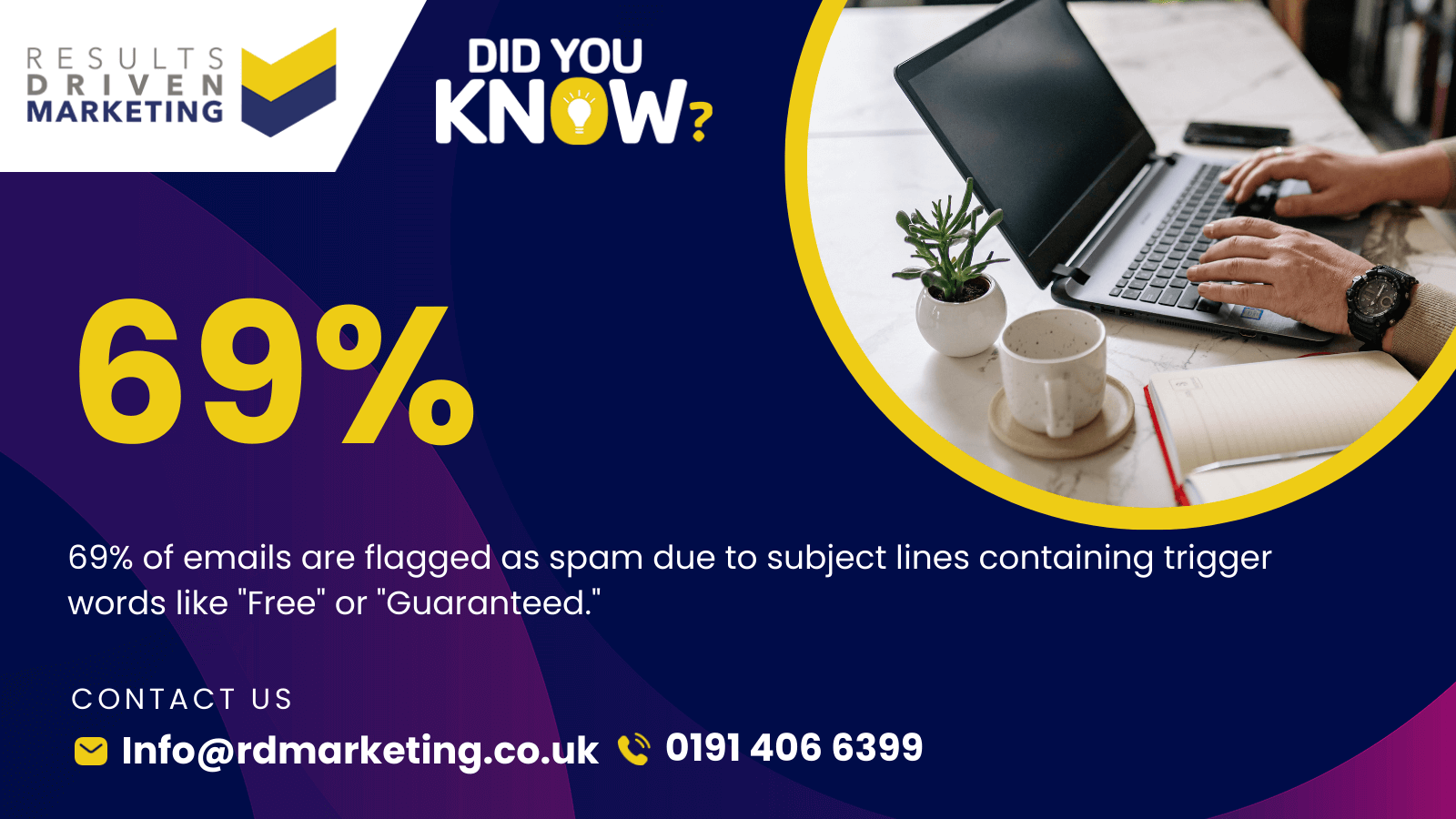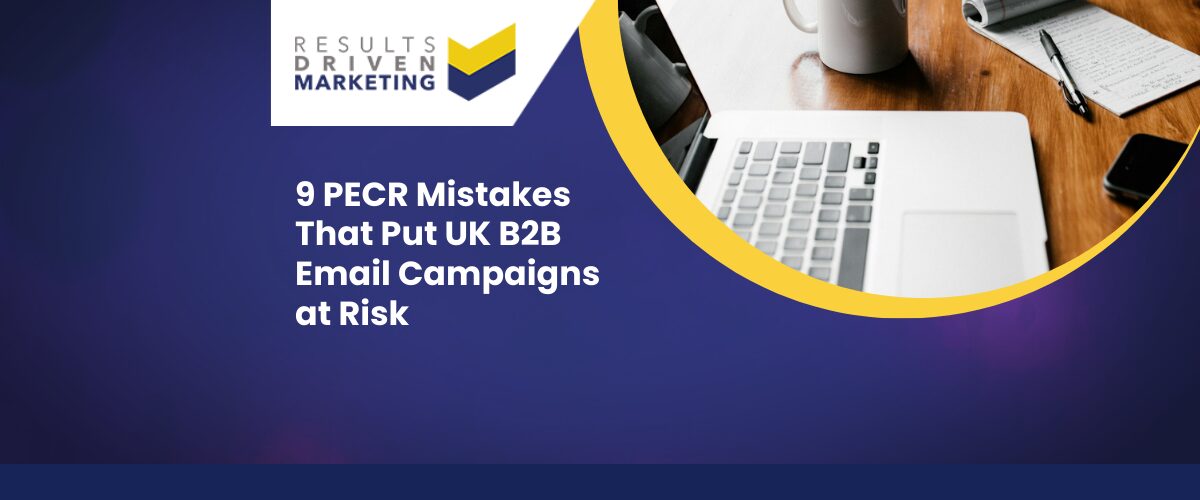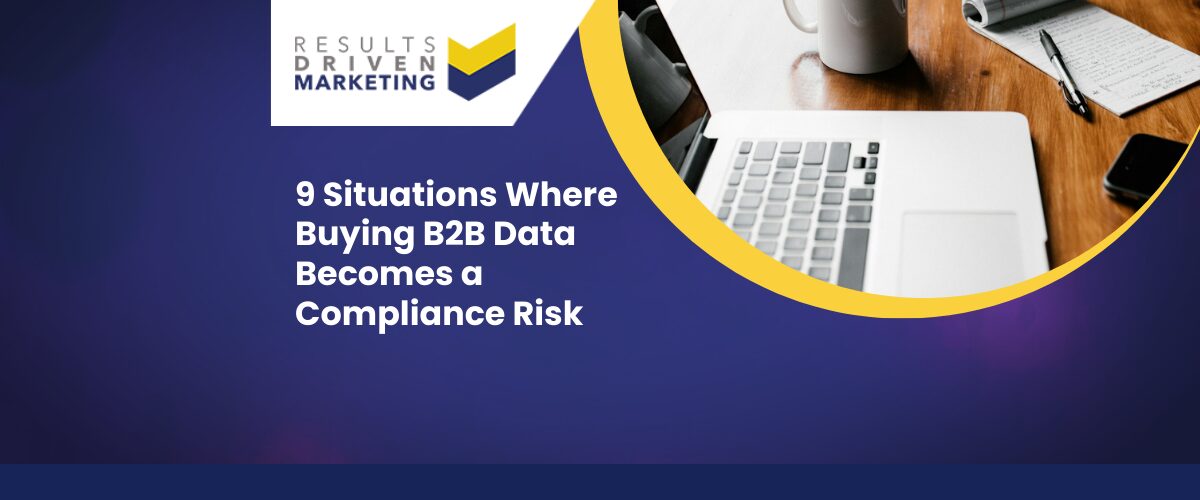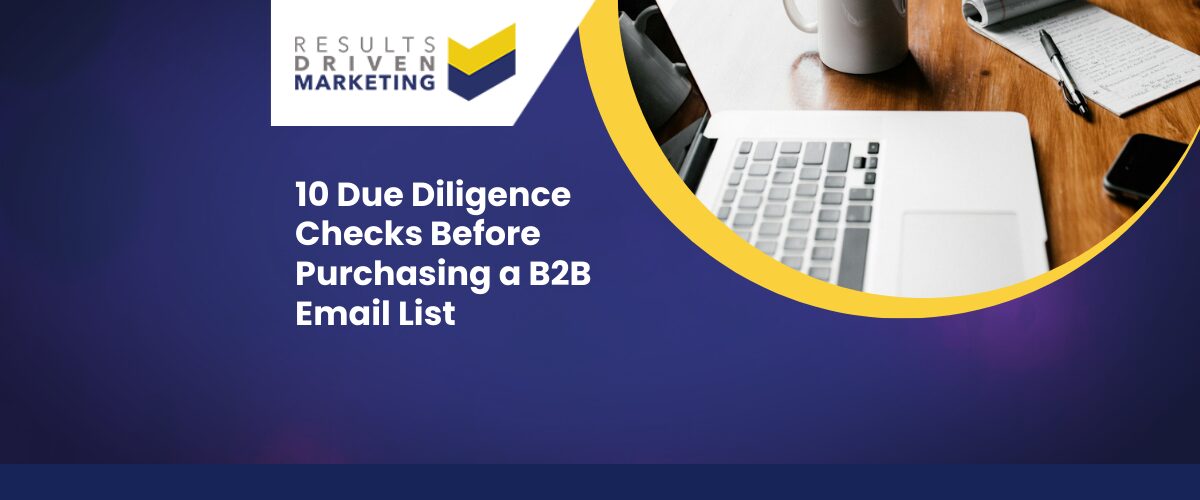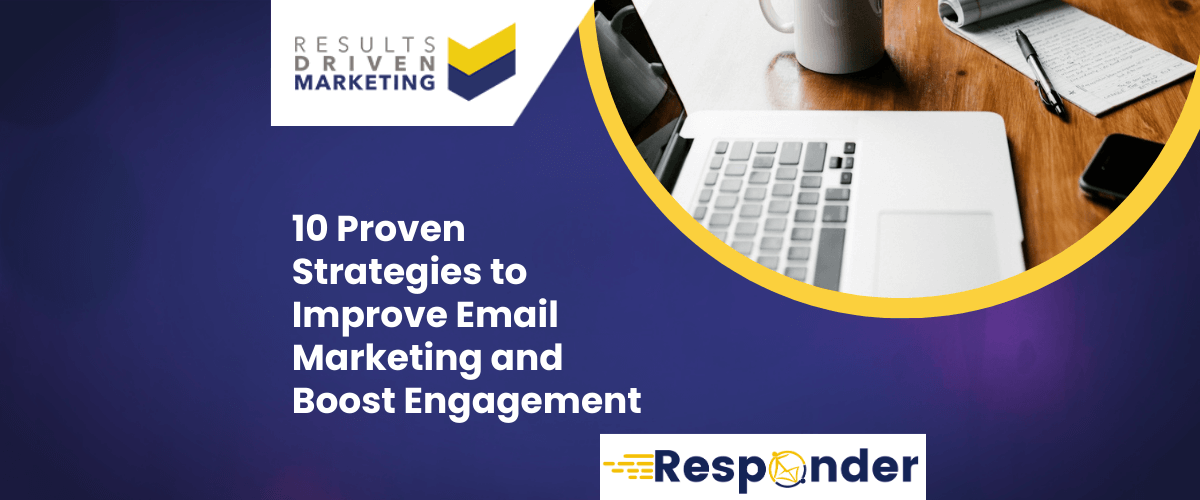
10 Proven Strategies to Improve Email Marketing and Boost Engagement
If you’re looking to improve email marketing, it’s still one of the best ways to connect and engage with your audience. Whether you’re running a B2B campaign or reaching out to consumers, email gives you that personal, direct line of communication. But here’s the catch—sending emails alone just doesn’t cut it anymore.
These days, businesses are struggling with low open rates, spam filters that block their messages, and subscribers who just don’t bother clicking. Sound familiar?
These challenges can leave even the most experienced marketers wondering how to improve email marketing strategies effectively. The good news? With the right approach, you can turn things around.
In this article, we’ll walk you through 10 proven strategies to improve email marketing and significantly boost your engagement rates. Whether it’s writing better subject lines, optimising your send times, or leveraging tools like data cleansing services, there are actionable steps to transform your campaigns.
At RD Marketing, we specialise in helping businesses enhance their marketing efforts with high-quality B2B data, direct mail data, and email marketing management services. Need a reliable email address list tailored to your needs? Check out our comprehensive Email Address List Data service and start reaching the right inboxes today.
Table of contents:
Strategy 4: Test and Optimise Sending Times
One often overlooked yet critical way to improve email marketing is by sending your emails at the optimal time. Even the most perfectly crafted email can fall flat if it lands in your subscriber’s inbox at the wrong moment.
Timing is everything when it comes to maximising engagement. When you send your emails at the right time, you increase the likelihood of higher open rates, click-through rates, and overall conversions.
So, how do you figure out the best time to send? Testing is key. Here are a few best practices to help you get started:
Start with industry benchmarks: Research shows that emails sent during late mornings or early afternoons tend to perform better for most industries.
However, every audience is different, so this should only serve as a starting point.
Analyse your audience behavior: Use tools to monitor when your subscribers are most active.
For example, our Email Marketing Management Services can help you track when recipients are engaging with your content, allowing you to adjust sending times accordingly.
As well as….
A/B test your send times: By running A/B tests, you can compare how emails sent at different times perform.
Split your list and send emails at varying times of the day, then analyse the data to determine the optimal sending window.
Remember, testing is not a one-time activity—it’s an ongoing process. As your audience grows or changes, their habits might evolve too, making it crucial to keep optimising your send times.
Additionally, it’s important to ensure that your email lists are up to date for better testing accuracy. Services like Data Cleansing can help keep your lists fresh and relevant, ensuring your emails are reaching the right people at the right time.
Finding the perfect sending time can take some trial and error, but the effort is well worth it. It’s a simple yet powerful way to improve email marketing, increase engagement, and make sure your emails are being opened and read when your audience is most likely to respond.
Strategy 5: Focus on Mobile Optimisation
With the ever-increasing number of people using smartphones to check their emails, mobile optimisation has become an absolute necessity for anyone looking to improve email marketing.
In fact, research shows that more than 60% of emails are opened on mobile devices, which means that if your emails aren’t mobile-friendly, you’re missing out on a massive chunk of potential engagement.
To ensure your emails look great and perform well on mobile devices, you need to focus on a few key elements of design and content structure. Here are some tips to help you get started:
Use a responsive design: A responsive email design automatically adjusts the layout based on the screen size.
This ensures that your email looks great whether it’s viewed on a desktop, tablet, or smartphone. Our Email Marketing Management Services can help you implement responsive designs that boost user experience across devices.
As well as….
Keep the text short and to the point: Mobile users often skim through emails, so it’s important to keep your content concise and easy to digest. Use short paragraphs and bullet points to convey your message clearly without overwhelming the reader.
Make your CTA buttons large and tappable: On mobile devices, small buttons can be difficult to tap accurately.
Ensure your call-to-action (CTA) buttons are large enough to be easily clicked, improving your chances of getting conversions.
For example, a company like Uber has mastered mobile optimisation in their email marketing.
Their emails are visually simple, with large images and clear CTA buttons that are easy to tap. This has helped them consistently drive engagement and get users back into the app with minimal friction.
Incorporating mobile-friendly design is a simple yet effective way to improve email marketing.
By optimising your emails for mobile, you can capture the attention of subscribers on the go, ensuring higher engagement rates and better overall performance.
Strategy 6: Use a Strong Call-to-Action (CTA)
A well-crafted call-to-action (CTA) is the driving force behind any successful email marketing campaign. Without a clear, compelling CTA, even the most beautifully designed and personalised email will fall short of its goal. The purpose of a CTA is simple: it tells the recipient exactly what action to take next.
A strong, actionable CTA can significantly improve email marketing engagement by guiding the reader to take immediate action, whether it’s clicking a link, signing up for a webinar, or making a purchase.
So, how do you create a CTA that truly drives engagement? Here are a few tips:
Use clear, straightforward language: Keep your message simple. Phrases like “Buy Now,” “Get Started,” or “Download Free Guide” are direct and tell the reader exactly what to do next.
Create a sense of urgency: Adding urgency can encourage immediate action. Phrases like “Limited Time Offer” or “Only a Few Left” make it clear that waiting could result in missing out, boosting click-through rates.
Make your CTA highly visible: Design plays a big role here. Use contrasting colors to make your CTA button stand out from the rest of the email. Keep it large enough to grab attention but not so overwhelming that it disrupts the flow of the content.
For example, Amazon is well known for their highly effective CTAs. Their emails often include clear, concise buttons such as “Shop Now” or “Claim Offer,” which are both simple and powerful at driving engagement.
As well as….
To ensure your emails are as effective as possible, make sure your CTAs are tailored to your audience.
Services like Telemarketing Data can help you refine your targeting, ensuring your CTAs are reaching the right people.
Additionally, using Email Marketing Management Services can help you analyse which CTAs are performing best, allowing you to optimise future campaigns.
Incorporating strong CTAs into your email campaigns is one of the easiest ways to improve email marketing results. When you make it clear what action the recipient should take—and make it easy for them to do so—you’re setting yourself up for higher engagement and better conversion rates.
Strategy 7: Leverage Automation for Drip Campaigns
If you’re looking to improve email marketing, one of the best ways to achieve this is by leveraging automation through drip campaigns.
Drip campaigns are a series of automated emails sent based on specific triggers or timelines, designed to nurture leads and guide them through the customer journey.
With automation, you can set up sequences that work for you 24/7, ensuring consistent communication with your audience and helping increase conversions without any manual effort.
Automation is powerful because it allows you to send the right message at the right time, based on the recipient’s actions or interests. Here are a few examples of effective automated email sequences:
Welcome Series: This is triggered when someone first subscribes to your list. A welcome series can introduce your brand, share valuable content, and encourage the subscriber to take the next step—whether that’s making a purchase or exploring your offerings.
Abandoned Cart Reminders: These emails are automatically sent when a potential customer adds products to their cart but doesn’t complete the purchase. A well-timed reminder with a strong CTA can encourage them to return and finish the transaction.
As well as….
Re-engagement Campaigns: For subscribers who haven’t interacted with your emails in a while, sending a series of re-engagement emails can help reignite their interest and bring them back into the fold.
To set up these sequences, you’ll need the right tools to automate the process. Our Email Marketing Management Services can help you automate these campaigns, allowing you to focus on other aspects of your marketing while your emails continue to work for you.
Automation platforms like Mailchimp, ActiveCampaign, and HubSpot can also streamline your drip campaigns and make it easy to track performance.
It’s also important to ensure your email lists are well-maintained, so your automated emails are reaching the right people. Services like our Data Cleansing and Email Address List Data solutions can help you ensure that your lists are accurate and up to date, maximising the impact of your automated campaigns.
By leveraging automation, you can improve email marketing efficiency, nurture leads more effectively, and increase your chances of turning prospects into loyal customers—all with minimal ongoing effort.
Automated drip campaigns allow you to provide consistent value to your audience, keeping them engaged at every stage of their journey.
Strategy 8: Encourage User-Generated Content (UGC)
One of the most effective ways to build trust and improve email marketing engagement is by incorporating user-generated content (UGC).
When subscribers see real testimonials, reviews, or photos from other customers, they’re more likely to trust your brand and engage with your emails. UGC adds a level of authenticity that’s hard to achieve with branded content alone.
So, how can you encourage your subscribers to contribute UGC? Here are a few tips:
Ask for reviews and testimonials: Encourage your customers to share their experiences with your products or services.
Sending a follow-up email after a purchase asking for feedback is a great way to gather this type of content.
Our Telemarketing Data can help you target specific customers who are more likely to provide valuable feedback.
Run contests and giveaways: Create incentives for your subscribers to share photos of your products in use or leave reviews.
You can offer discounts, exclusive content, or entry into a prize draw. This not only helps collect UGC but also boosts engagement.
As well as….
Showcase UGC in your emails: Once you’ve gathered reviews, testimonials, or customer photos, incorporate them directly into your email campaigns.
Highlighting real customer experiences builds trust and encourages others to share as well.
Brands like Starbucks have leveraged UGC successfully with campaigns like “#RedCupContest,” where customers shared photos of their holiday cups for a chance to win a prize.
This not only drove engagement but also helped create a sense of community around their brand.
Incorporating UGC into your campaigns is a powerful way to improve email marketing efforts. When your audience sees authentic content from real users, they’re more likely to trust your brand and engage with your emails.
To ensure you’re reaching the right people, make sure your email lists are up to date with our Data Cleansing Services.
A clean, relevant list ensures that your emails land in the inboxes of engaged customers, maximising the impact of your UGC campaigns.
Strategy 9: Regularly Clean Your Email List
One of the most crucial yet often overlooked ways to improve email marketing is by maintaining a clean email list. Over time, email lists can become cluttered with inactive subscribers, incorrect addresses, or outdated data.
This can lead to higher bounce rates, lower engagement, and a negative impact on your email deliverability.
Regularly cleaning your email list ensures that your messages are reaching the right audience and not ending up in spam folders.
Maintaining a clean email list helps you:
- Reduce bounce rates: Invalid or outdated email addresses can cause your emails to bounce, which negatively affects your sender reputation.
- Improve deliverability: ISPs monitor bounce rates, and if they’re too high, your emails are more likely to be marked as spam.
- Boost engagement: A cleaner list means you’re targeting an audience that’s actually interested in your content, leading to higher open and click-through rates.
Here’s a simple step-by-step guide to help you clean your email list:
Identify inactive subscribers: These are the people who haven’t opened or clicked on any of your emails in the last 6-12 months.
You can segment your list based on this behavior and send a re-engagement email, asking them if they’d like to stay subscribed.
Remove bounced or invalid emails: Hard bounces (permanent delivery failures) should be removed from your list immediately. Soft bounces (temporary issues) should be monitored and removed if they persist.
As well as….
Use a re-engagement campaign: For those inactive subscribers, create a series of emails asking if they still want to hear from you. If they don’t respond after a few attempts, it’s best to remove them from your list to keep it clean.
Automate the cleaning process: Consider using tools or services to help you automate the process of cleaning your email list.
RD Marketing offers Data Cleansing Services that can help you regularly refresh your list, ensuring that you’re targeting active and valid contacts.
Keeping your email list clean is essential to improve email marketing performance.
By removing inactive subscribers and invalid emails, you’ll see better deliverability, fewer bounces, and higher engagement from your audience.
For businesses looking to maintain the accuracy and relevance of their lists, services like our Email Address List Data and Data Cleansing can ensure you’re always working with high-quality data.
Don’t let a cluttered email list hold your campaigns back. Regularly clean and update your contacts to maximise your email marketing efforts and deliver your messages to the people who matter most.
Strategy 10: Analyse and Refine Campaigns Using Data
To truly improve email marketing, you need to continuously monitor and analyse your email campaign data. Without proper analysis, it’s impossible to know what’s working and what’s not.
Metrics such as open rates, click-through rates (CTR), and conversions provide valuable insights into how your audience is engaging with your emails.
Regularly reviewing this data allows you to make informed decisions and refine your campaigns for better performance.
Here’s why tracking email metrics is so important:
- Open rates: This tells you how many people are actually opening your emails. If your open rate is low, it might indicate that your subject lines aren’t compelling enough, or your emails are landing in spam folders.
- Click-through rates (CTR): This shows how many people clicked on a link or call-to-action (CTA) within your email. A low CTR may mean your content isn’t resonating with your audience or your CTA isn’t clear enough.
- Conversion rates: This is the ultimate measure of success—how many people are taking the desired action, such as making a purchase or signing up for a service. If conversions are low, it’s time to evaluate your offer or the steps involved in completing the action.
Once you have the data, the next step is to use it to refine your campaigns. Here’s a step-by-step approach:
Identify trends: Look for patterns in your data. Are certain subject lines consistently driving higher open rates?
Are specific types of content leading to more clicks? Use these insights to guide future campaigns.
As well as….
Test and experiment: A/B testing is one of the most effective ways to optimise your campaigns. Try sending the same email with two different subject lines or CTAs and see which performs better.
This data-driven approach helps you fine-tune your strategy over time.
Optimise for different audiences: Not all segments of your audience will respond the same way. By using B2B Data or International Email Lists, you can target different groups and adjust your messaging to better suit their needs and behaviors.
Refine based on results: After each campaign, take the time to review your results and make adjustments. Whether it’s tweaking the design, improving CTAs, or refining your segmentation, ongoing optimisation is key to improve email marketing results.
By continuously analysing and refining your campaigns, you’re ensuring that each new email you send performs better than the last.
Services like our Data Enrichment and Data Cleansing solutions can further enhance your data, giving you a more accurate view of your audience and helping to boost your overall email performance.
Conclusion
Improve email marketing requires a combination of strategy, creativity, and data-driven insights.
The 10 proven strategies we’ve covered—personalisation, segmentation, optimising send times, mobile-friendly design, strong CTAs, leveraging automation, encouraging user-generated content, cleaning your email lists, and using data to refine campaigns—are all key components that can help you boost engagement and drive better results.
Remember, the key to success is continuously improve email marketing efforts.
As your audience evolves, so should your campaigns. By consistently testing, analysing, and optimising your emails, you can ensure they remain relevant and impactful.
For businesses looking to take their email marketing to the next level, RD Marketing offers a variety of services designed to support your efforts.
Whether it’s B2B Data, Email Address List Data, or Email Marketing Management Services, we have the tools and expertise to help you refine your strategy and maximise your results.
Contact us today for personalised advice and expert solutions to optimise your email campaigns and achieve better performance. Visit our website at www.rdmarketing.co.uk to learn more.
Who are we?
Thinking about “how do I buy data“?
Providing b2b database solutions is our passion.
Offering a consultancy service prior to purchase, our advisors always aim to supply a database that meets your specific marketing needs, exactly.
We also supply email marketing solutions with our email marketing platform and email automation software.
Results Driven Marketing have the best data of email lists for your networking solutions as well as direct mailing lists & telemarketing data in telemarketing lists
We provide data cleansing and data enrichment services to make sure you get the best data quality.
We provide email marketing lists and an international email list for your business needs.
At RDM We provide b2c data as we have connections with the best b2c data brokers.
A good quality b2b database is the heartbeat of any direct marketing campaign…
It makes sense to ensure you have access to the best!
Call us today on 0191 406 6399 to discuss your specific needs.
Results Driven Marketing
0191 406 6399


